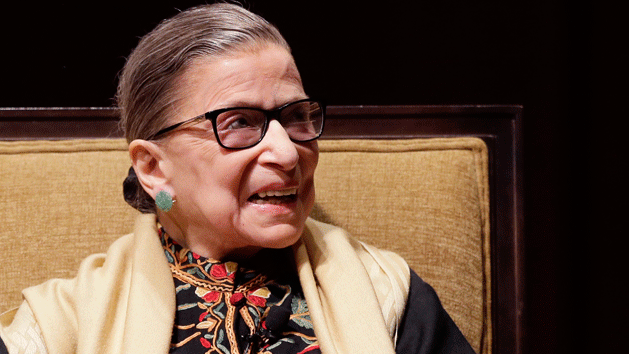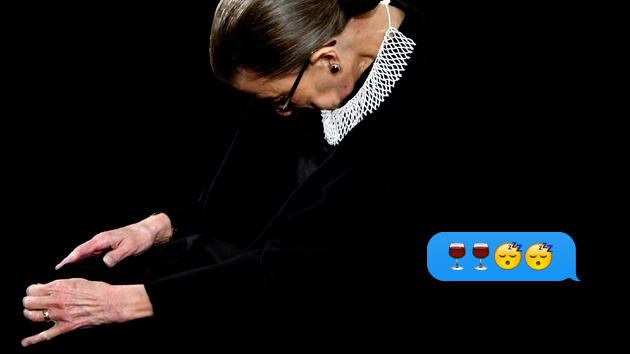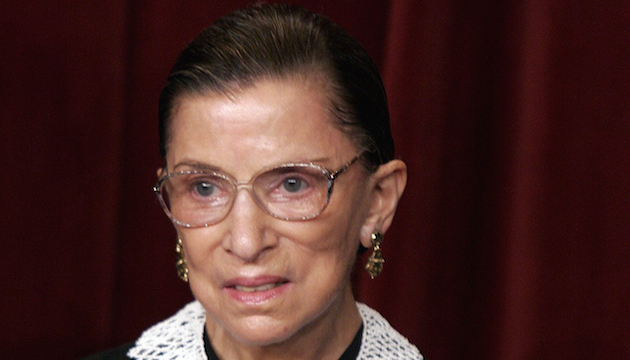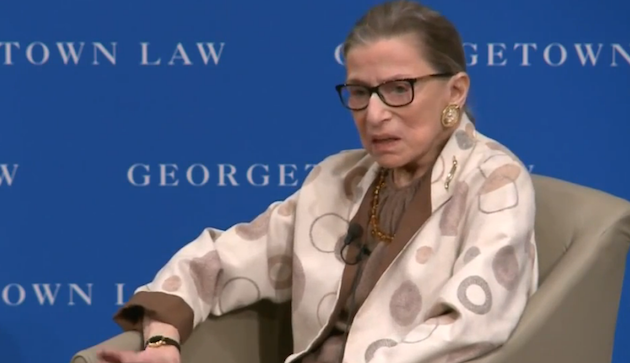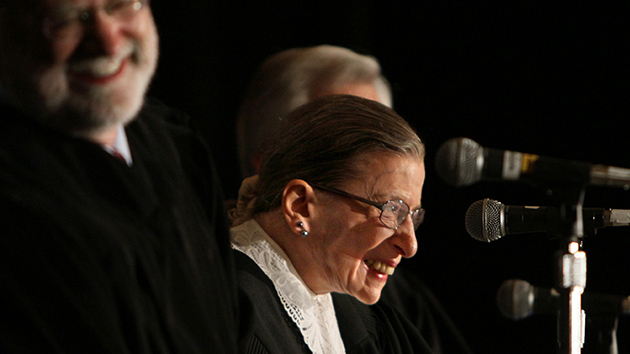
Charlie Neuman/ZUMA
As the Supreme Court started to hear oral arguments to Obergefell v. Hodges—the historic case that could determine the legality of gay marriage bans—on Tuesday, Justice Ruth Bader Ginsburg delivered quite the perfect response to her same-sex-marriage opponents.
Back in February, the 82-year-old justice expressed her optimism that the court will eventually rule in favor of gay marriage, citing the evolution in “people’s attitudes” on the issue “has been enormous” in recent years. Although the rest of the court appeared deeply divided on Tuesday, judging by the fact that even anti-gay activists are expecting gay marriage will ultimately win, we’re hoping to see Ginsburg’s prediction become a reality soon.
Below are some of the same-sex-marriage arguments and her responses to each.
Argument: The court does not have legal right to change a “millennia” of tradition.
RBG’s response: “Marriage today is not what it was under the common law tradition, under the civil law tradition. Marriage was a relationship of a dominant male to a subordinate female. That ended as a result of this court’s decision in 1982, when Louisiana’s Head and Master Rule was struck down. Would that be a choice that state should be allowed to have? To cling to marriage the way it once was?”
Argument: The institution of marriage is inherently linked to a couple’s ability to procreate.
RBG’s response: “Suppose a couple, 70-year-old couple, comes in and they want to get married? You don’t have to ask them any questions. You know they are not going to have any children.”
Argument: Gay marriage “impinges on the state” and takes benefits away from straight couples.
RBG’s response: “How could that be, because all of the incentives, all of the benefits of marriage affords would still be available. So you’re not taking away anything from heterosexual couples. They would have the very same incentive to marry, all the benefits that come with marriage that they do now.”
Argument: Legal gay marriage has never been a possibility for most of history. Why now?
RBG’s response: “[Same-sex couples] wouldn’t be asking for this relief if the law of marriage was what it was a millennium ago. I mean, it wasn’t possible. Same-sex unions would not have opted into the pattern of marriage, which was a relationship, a dominant and a subordinate relationship. Yes, it was marriage between a man and a woman, but the man decided where the couple would be domiciled; it was her obligation to follow him.
There was a change in the institution of marriage to make it egalitarian when it wasn’t egalitarian. And same-sex unions wouldn’t—wouldn’t fit into what marriage was once.”

